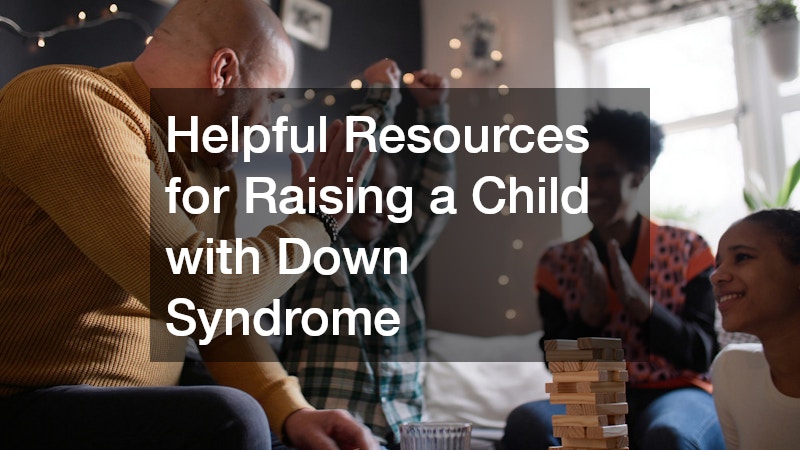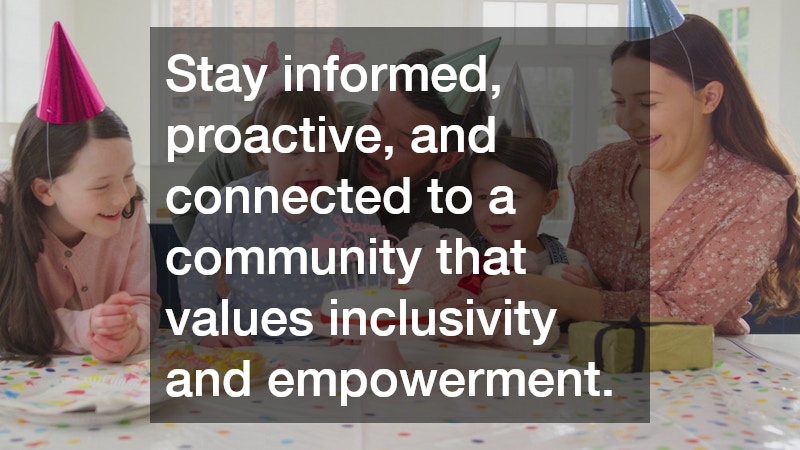
Raising a child with Down syndrome can be a journey filled with unique challenges and remarkable joys. Parents often find themselves seeking reliable and supportive resources to aid them along the way. This article provides a comprehensive overview of helpful resources available to families, aiming to make the journey of raising a child with Down syndrome a fulfilling and manageable experience.
Understanding Down Syndrome
Down syndrome is a genetic disorder caused by the presence of an extra chromosome 21. This condition affects approximately 1 in every 700 babies born in the United States, according to the Centers for Disease Control and Prevention (CDC).
Understanding the genetic and developmental aspects of Down syndrome is crucial for caregivers and educators supporting these children.
The first step for parents is to educate themselves about what Down syndrome entails. Books and online resources such as those provided by the National Down Syndrome Society (NDSS) offer comprehensive insights into the condition. Similarly, discussions with healthcare professionals can shed light on medical needs, enabling parents to provide better care.
A wealth of information is available online to help parents understand the typical developmental milestones for children with Down syndrome. Websites like KidsHealth and Down Syndrome International provide guidelines and support, ensuring that parents are well-prepared for the unique journey ahead. Raising a child with Down syndrome can be enriched by staying informed and proactive.
Educational Support
Educational resources play a crucial role in supporting children with Down syndrome. Early intervention programs are fundamental, as they help address developmental delays and prepare children for school. These programs, often funded by public resources, provide vital services such as speech and occupational therapy.
Customized educational plans, such as Individualized Education Programs (IEPs), can be tailored to suit the learning needs of each child. Collaborating with educators and specialists ensures that these plans are effectively implemented. The goal is to foster an inclusive learning environment where children with Down syndrome can thrive alongside their peers.
Community-based programs like buddy systems and peer mentoring can also be invaluable. They create enriching social opportunities and foster friendships among children of all abilities. Such initiatives promote empathy and understanding, encouraging a holistic approach to education for children with Down syndrome.
Healthcare and Therapy Services
Access to quality healthcare services is essential for the well-being of children with Down syndrome. Regular check-ups with pediatricians, geneticists, and other specialists ensure proper monitoring and management of health conditions associated with Down syndrome. These interactions allow parents to stay informed about any potential health concerns.
Therapeutic interventions such as speech, occupational, and physical therapy are critical components of care. These therapies are designed to enhance communication, motor skills, and daily living activities, contributing to a better quality of life for the child. Therapy services can be accessed through hospitals, clinics, or community centers, providing diverse options for families.
Some parents have found value in alternative therapies, such as music or art therapy, which can supplement traditional treatments. These therapies focus on enhancing creativity and emotional expression, offering holistic benefits for children with Down syndrome. Engaging in diverse therapeutic activities broadens the horizon of developmental potential.
Social and Emotional Support Networks
Having a robust support network is vital for parents raising a child with Down syndrome. Support groups and online communities offer a platform to share experiences, advice, and encouragement. Connecting with other parents who understand the journey can make a significant difference in managing daily challenges.
Siblings and extended family members also play an essential role in creating a nurturing environment. Educational workshops and family counseling sessions can assist families in understanding and supporting their loved ones. Together, they form a cohesive unit that uplifts and motivates children with Down syndrome.
Non-profit organizations, such as the Down Syndrome Association, provide resources spanning social events, training workshops, and advocacy initiatives. These organizations aim to promote inclusion and improve the quality of life for individuals with Down syndrome. Participation in community events fosters a sense of belonging and collaboration among families.
Raising a child with Down syndrome is a path filled with unique experiences and rewarding achievements. By utilizing the plethora of resources available—ranging from educational support to healthcare and social networks—parents can provide the best possible environment for their child. The key is to stay informed, proactive, and connected to a community that values inclusivity and empowerment.
The journey may come with challenges, but the love and resilience shared among family members create a foundation of support. With continued advocacy and accessibility to resources, raising a child with Down syndrome becomes an enriching and transformative experience, not just for the child, but for the entire family.
.

